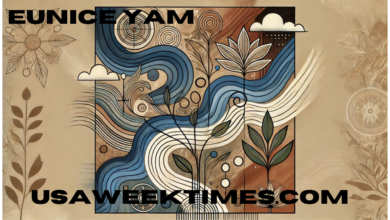Agrawau: Exploring the Essence, Significance, and Mystery Behind the Term
Agrawau is a term that may seem enigmatic at first glance. It does not easily fall into conventional categorizations, making it a subject of curiosity and intrigue. Despite its obscure nature, Agrawau holds meaning and significance in various contexts across different cultures, languages, and possibly regions. This article aims to break down the key elements of Agrawau, exploring its roots, interpretations, and potential implications in the modern world.
1. What is Agrawau?
Agrawau is not a widely recognized term in mainstream media or scholarly circles, but its presence has been felt in a variety of different domains. The term is often associated with spiritual, cultural, or linguistic references, with each interpretation giving it a unique flavor.
In some contexts, Agrawau may be seen as a local term or expression from certain parts of the world. It could represent a historical or cultural practice that is deeply ingrained in the traditions of a specific community. Alternatively, Agrawau may function as a concept with multiple meanings, depending on the context in which it is used.
2. Agrawau in the Context of Language and Culture
One of the most compelling aspects of Agrawau is its linguistic roots. The word may derive from a language or dialect that is lesser known or even regionally specific. As languages evolve and communities change, so too do the meanings and uses of certain words. The influence of ancient cultures, linguistic shifts, or geographic isolation could all play a role in the development and preservation of the term Agrawau.
In the realm of culture, Agrawau could be tied to specific rites or rituals. The name may refer to a festival, a ceremonial practice, or even a sacred ritual observed in particular societies. It may also be a name associated with an ancient tradition or set of customs that have carried over through the centuries.
3. Agrawau as a Spiritual or Mystical Concept
Beyond the realms of culture and language, Agrawau may also have spiritual significance. It could refer to an element of mysticism, the belief in unseen forces, or an aspect of divine understanding. Many cultures around the world have words or terms that encapsulate complex spiritual philosophies, and Agrawau may serve a similar function in certain belief systems.
In some spiritual traditions, Agrawau could embody a principle of balance, transformation, or enlightenment. Just as the words “karma” or “chi” hold profound meaning in various cultures, Agrawau might be understood as a guiding force that influences the lives of its adherents. This deeper understanding connects the term to practices like meditation, contemplation, and self-awareness.
4. The Role of Agrawau in Modern Thought
In the modern age, the relevance of Agrawau might not be immediately apparent to many. Yet, like many ancient terms or concepts, Agrawau has the potential to shed light on contemporary issues. As global cultures continue to interact and blend, it is important to recognize the value of rediscovering old traditions and perspectives that may help resolve modern-day conflicts.
The concept of Agrawau, in this case, could symbolize a path toward personal growth or community cohesion. It may serve as a reminder of the interconnectedness between individuals and the environment, urging societies to rethink how they approach ecological sustainability, social justice, and personal well-being.
5. Agrawau’s Possible Connection to Social Movements
Given the growing interest in decolonizing knowledge and rediscovering forgotten traditions, it’s plausible that Agrawau could play a role in global social movements. The search for identity, empowerment, and recognition of diverse cultures is an ongoing effort in many parts of the world. Agrawau could represent the need to reclaim ancestral practices, wisdom, and knowledge that have been marginalized or lost over time.
Through the rediscovery of terms like Agrawau, people might find renewed strength in their cultural heritage, which could inspire social action. The term might, in this sense, be a symbol of resistance to homogenizing global forces or a call to return to more grounded, community-centered ways of living.
6. Agrawau in Art and Creativity
The notion of Agrawau may also lend itself to artistic interpretation. Artists, poets, and musicians throughout history have drawn upon cultural and spiritual terms to inspire creativity and innovation. In the world of fine arts, visual expression, or even literary endeavors, Agrawau could serve as a source of imagination, meaning, or symbolism.
Its complexity as a word and concept makes it ripe for exploration in various creative forms. Whether through abstract painting, performance art, or poetry, artists may find an expressive outlet in capturing the essence of Agrawau. This exploration of the term could provide new ways of thinking about identity, existence, and the role of cultural preservation.
7. Agrawau and the Future
While the term Agrawau is not widely known in mainstream discourse, there is a growing interest in reviving ancient concepts and traditions that have been overlooked or forgotten. As we look toward the future, it is possible that the term Agrawau will find its place in a global conversation about cultural preservation, spiritual awareness, and social justice.
In a world increasingly dominated by technology and global capitalism, there is a yearning for meaning beyond the material. Agrawau could offer a reminder of a different kind of value system, one that prioritizes connection, balance, and harmony. This might serve as a counterpoint to the fast-paced, consumption-driven world that many of us inhabit.
8. Conclusion: Embracing Agrawau’s Potential
The mystery surrounding Agrawau may very well be part of its allure. Although the term is not widely known, its potential to unlock deeper layers of meaning in both individual and collective experiences is undeniable. Whether understood as a cultural term, spiritual concept, or artistic symbol, Agrawau holds the promise of offering valuable insights into human life and society.
In exploring the idea of Agrawau, we can begin to appreciate the depth and complexity that such a term may carry. It invites us to reflect on our relationship with the past, our responsibilities to the present, and our hopes for the future. Agrawau, though seemingly obscure, may be more relevant today than ever before.
By embracing the term in its various contexts—be it cultural, spiritual, or artistic—Agrawau has the potential to serve as a beacon of understanding, guiding us toward a more thoughtful, connected, and purposeful existence




